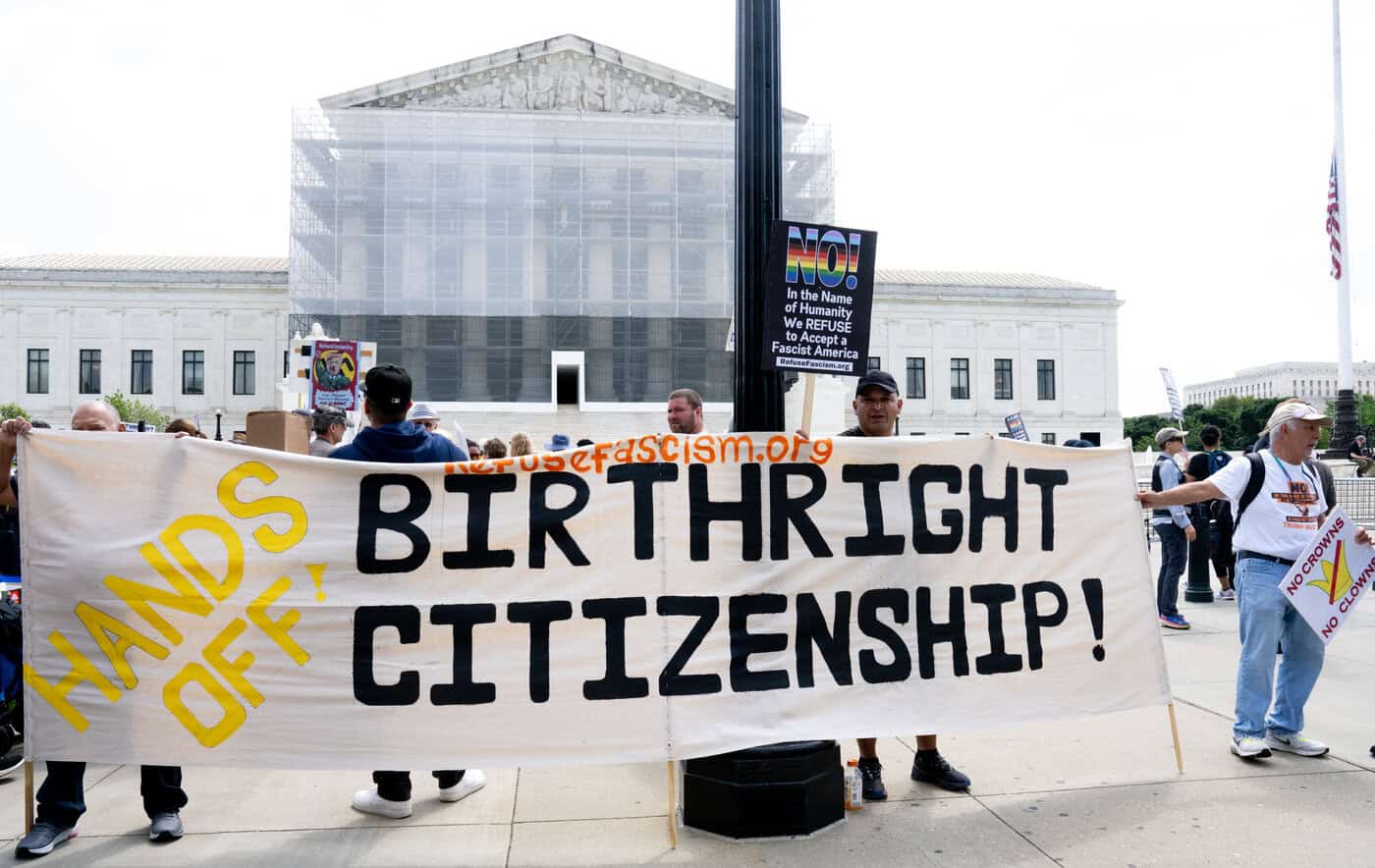
.svg)
The White House has released new guidance detailing how it would enforce President Trump’s executive order ending automatic birthright citizenship for certain children born in the U.S. While the order is currently on hold due to a recent federal court ruling, government agencies are preparing to implement the policy in the event that the executive order is permitted to go into effect in the future, raising concerns among immigrants, U.S. citizens, and employers.
What Is the Birthright Citizenship Executive Order?
Under the Fourteenth Amendment and longstanding precedent, anyone born on U.S. soil is automatically granted U.S. citizenship, regardless of their parents’ immigration status. President Trump’s executive order seeks to end this for children born to undocumented parents or those in the U.S. on temporary visas — a major shift from current law. Exceptions would include children of refugees, asylees, and green card holders.
{{newsletter-component}}
Current Birthright Citizenship Rules vs. Proposed Changes
While the executive order is not yet in effect, recent documents from U.S. Citizenship and Immigration Services (USCIS), the State Department, and the Social Security Administration (SSA) outline the administration’s intended approach. The proposed strategy involves implementing stricter requirements for parents to obtain U.S. passports, Social Security numbers (SSNs), and federal benefits for their U.S.-born children.
How It Currently Works
- A child’s U.S. birth certificate is considered sufficient proof of U.S. citizenship, and parents can present it to the government to get a passport, SSN, and federal benefits for their child.
- Parents don’t need to prove their own citizenship or immigration status when applying for these documents or benefits on their U.S.-born child’s behalf (except in cases involving foreign diplomats, who aren’t considered under U.S. jurisdiction).
How It Would Work Under the Proposed Plan
- For any child born in the U.S. after the executive order’s effective date, their U.S. birth certificate alone is not considered sufficient proof of U.S. citizenship, and parents will need to provide additional documentation to obtain a passport, SSN, or federal benefits for their child.
- At least one parent would need to prove their own citizenship or eligible immigration status when applying for these documents or benefits on their U.S.-born child’s behalf.
- Federal agencies would verify parental status during or after birth registration.
- Federal documents recognizing U.S. citizenship are not issued to children whose parents lack qualifying status.
“Ending birthright citizenship by fiat in contravention of several existing court challenges is an effort destined for failure. In the meantime, it will only create chaos and confusion in many households already struggling to navigate our broken immigration system.” — Erik Finch | Director of Global Operations, Boundless Immigration | Former USCIS Officer
Implications for Individuals and Families
Restricted birthright citizenship would have profound consequences on individuals and families:
- Family Planning and Uncertainty: Legal ambiguities would likely deter many immigrant and mixed-status families from having children in the U.S., leading some to delay or reconsider building their families there.
- Risk of Statelessness: Children denied citizenship at birth — especially if their parents’ home countries cannot confer nationality — could become stateless, facing lifelong barriers to education, healthcare, travel, and legal protection.
- Reduced Access to Services: Even the threat of this policy’s implementation is likely to discourage families from seeking healthcare or essential public services, worsening health and welfare outcomes.
- Bureaucratic and Legal Challenges: Stricter documentation rules could cause errors, delays, or denials, increasing stress and potential legal limbo for families.
Implications for Employers
Employers that depend on global talent could face serious challenges:
- Recruitment and Retention: Uncertainty around children’s citizenship may deter skilled foreign professionals from working in or staying in the U.S.
- HR Complexity and Compliance: Varied state laws could complicate HR, payroll, and benefits administration, requiring greater investment in immigration support for employees and their families.
- Risk of Discrimination: Increased scrutiny of family and citizenship status raises the risk of accidental anti-discrimination violations and workplace unfairness.
- Employee Wellbeing and Productivity: Ongoing anxiety about family status can lower morale, productivity, and long-term workforce stability, ultimately impacting company competitiveness.
Broader Social and Economic Implications
Fewer foreign-born residents and their U.S.-citizen children would reduce population diversity, shrink the workforce, and limit innovation. Communities of color — especially Latino families — would be disproportionately affected, deepening existing inequalities and creating long-term disparities. Over time, this could lead to a rise in U.S.-born individuals without legal status or statehood, increasing poverty, exclusion, and instability.
In addition, the proposed policy could expand the undocumented immigrant population, strain the U.S. immigration system, and fuel long-term political tension. Denying birthright citizenship risks alienating immigrant communities, weakening social cohesion, and creating a stateless underclass with limited access to education, jobs, and stability.
Even as a proposal, the policy has already sparked confusion and anxiety, leading some families to avoid essential services and underscoring the urgent need for clear guidance and community support.
Looking Forward
Multiple court rulings have blocked the executive order, and it’s unclear if or when the administration’s plans will take effect. However, the government’s ongoing preparations suggests the issue will remain a priority for the Trump administration.
The American Civil Liberties Union (ACLU) and state attorneys general have called the order unconstitutional and vowed to continue fighting it in court. Immigration advocates have reassured families that, for now, children born in the U.S. remain U.S. citizens regardless of their parents’ status, and no immediate action is required.
{{cta-component-center-aligned}}
.png)
.png)
.png)









.svg)
.avif)